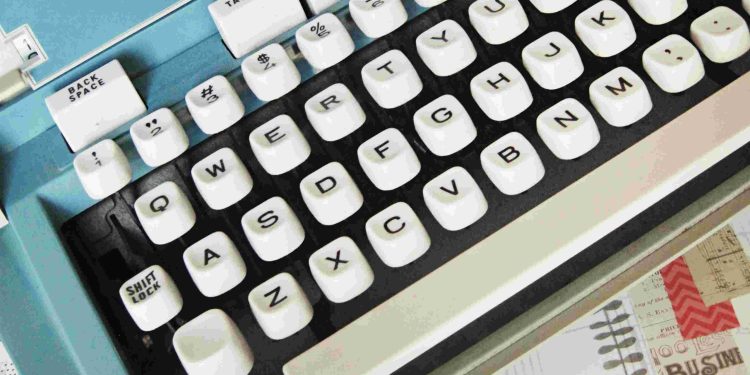Beyond Polishing Words: The Essence of Professional Editing
Editing is not merely a mechanical task of correcting grammar and spelling; it is the art of elevating ideas, refining narratives, and crystallizing thoughts into impactful prose. As a professional editor who has spent years transforming disjointed drafts into polished masterpieces, I can say with confidence: editing is as much about psychology and philosophy as it is about language. The best editors are not gatekeepers but collaborators, helping writers articulate their unique voice while ensuring their communication resonates powerfully with audiences.
Consider this: in a world overflowing with information, the ability to communicate effectively has never been more critical. Yet, many professionals—be they authors, business executives, or academics—struggle to present their ideas with clarity and finesse. This gap between thought and expression is where professional style editing services become indispensable. They bridge the divide, enabling individuals to not just communicate but to inspire, persuade, and lead.
From Personal Endeavors to Societal Trends
Reflecting on my career in editing, I’ve noticed a remarkable shift in the expectations of clients over the past decade. Early on, most sought basic proofreading services. However, the rise of digital communication, coupled with globalized collaboration, has created demand for nuanced, culturally aware editing that goes far beyond surface-level corrections. Today, editing must address tone, cultural sensitivity, and even the strategic alignment of language with broader organizational goals.
This evolution mirrors broader societal trends. The digital age has democratized access to platforms where individuals can share their stories, ideas, and expertise. Blogs, ebooks, and social media have given voices to millions who previously stayed silent. However, this proliferation of content has also heightened competition. To stand out, one requires not just a clear message but a refined, professional style that captivates the reader—an asset professional editing services hone to perfection.
Rethinking Traditional Approaches to Editing
Traditionally, editing has been perceived as a behind-the-scenes activity, almost invisible to the end consumer. But is this a limitation we should accept? Perhaps it’s time to champion the role of editors in content creation. Some might argue that editing is the unsung hero of great storytelling, yet what if we began presenting it as a cornerstone of collaborative creation? Imagine editors not as silent fixers but as co-authors of clarity and meaning.
The same rethinking applies to the tools we use. While modern technology offers AI-powered grammar checkers and software-enhanced workflows, it’s crucial to remember: no algorithm can yet replicate the deep contextual understanding and empathy of a skilled human editor. Editors are uniquely equipped to read between the lines, understand subtext, and align the messaging with goals that transcend the written word. The human touch matters more than ever in a world increasingly dominated by machines.
Crossing Disciplines: Editing Meets Psychology, Technology, and Business
Why does editing matter? The answer lies in its multidisciplinary nature. Psychological principles of communication—such as tone, readability, and emotional resonance—play a critical role in effective editing. A seemingly small editorial choice, such as switching from passive to active voice, can significantly alter the reader’s perception and engagement.
From the perspective of business, editing is increasingly tied to branding and strategy. Every word in a corporate document reflects the organization’s ethos, values, and aspirations. Inconsistent tone or unclear messaging can damage credibility, while polished, meticulous editing can enhance trust and appeal.
Even technology has a seat at the table. The integration of data-driven insights into editing processes—such as optimizing readability for SEO or tailoring content for user metrics—demonstrates how editing is evolving alongside technological advancements. Editors today leverage tools not to replace creativity but to refine it further.
The Future of Professional Style Editing
What comes next for professional editing in a rapidly shifting landscape? Several trends emerge as likely directions:
- Hybrid Editing Models:
The combination of human expertise and AI assistance will become increasingly common, offering both efficiency and emotional nuance. - Globalization:
Editors will need to navigate linguistic diversity, cultural differences, and international standards, making cultural intelligence a critical skill. - Education:
As writing and communication skills become more valued in all professions, demand for editorial training and mentorship will rise.
Steps to Elevate Your Writing Through Professional Editing
If you’re considering leveraging professional style editing services, here are actionable steps to maximize the experience:
- Clarify Your Purpose:
Be clear about the goals of your document—whether it’s to persuade, inform, or inspire. - Choose the Right Editor:
Look for someone whose expertise aligns with your project’s needs, from technical editing to creative storytelling. - Engage in a Dialogue:
Treat editing as a collaborative process. Communicate openly with your editor to ensure your message remains authentic. - Embrace Feedback:
Understand that the editing process involves constructive criticism aimed at elevating your work. - Invest in Learning:
Take note of recurring issues in your writing, and use them as opportunities for growth.
A Call for Continuous Learning
If there’s one takeaway, it’s this: the journey of honing one’s communication skills is never complete. As humans, we are perpetually learning, iterating, and refining. Embracing professional editing services is not just about improving individual documents but about committing to lifelong improvement in expression and understanding.
So, the next time you draft an article, proposal, or novel, pause for a moment and ask yourself: How might an editor help amplify my ideas? Because when your words carry weight, the world listens.











